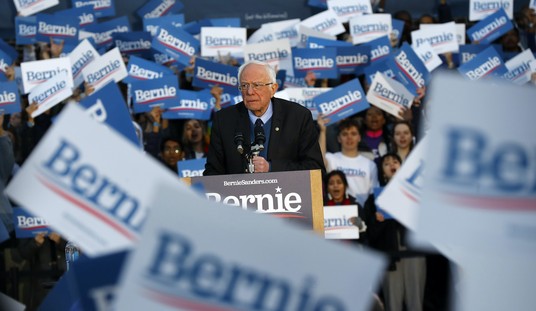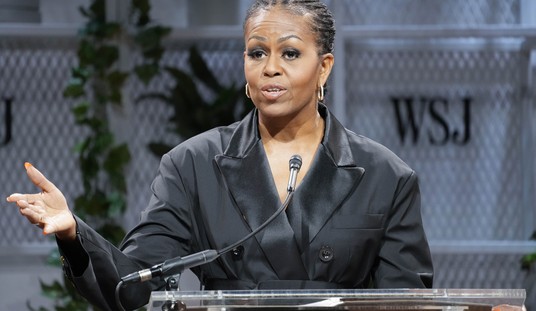Can Donald Trump flip Minnesota back to the GOP in a presidential election for the first time in nearly 50 years? Alas, as Hot Air’s resident Land-of-Ten-Thousand-Lakes observer, the task falls upon me to cast a little cold water on the idea, although perhaps not quite as much as today’s Star-Tribune poll suggests. Despite his sensational and controversial rally last week, Trump trails the leading challengers by wide margins in Minnesota, and a couple of the not-so-leading ones too:
The two current front-runners for the Democratic nomination, former Vice President Joe Biden and U.S. Sen. Elizabeth Warren, both beat the president by double digits among Minnesota voters. Voters polled picked Biden over Trump by 12 percentage points, 50% to 38%.
Warren, who attracted a large crowd at an August campaign rally in St. Paul, tops Trump 51% to 40%. U.S. Sen. Bernie Sanders, who places third in most national polls of the Democratic field, is ahead of Trump 49% to 40%.
The Strib pollster pitted Trump against four potential challengers, not the whole field. We don’t know, for instance, how Trump might perform against Pete Buttigieg, whose numbers have been rising enough to start becoming a top-tier contender for the nomination — for the moment, anyway. Instead, the poll uses the top three consistent polling leaders, plus a look at the local favorite:
- Biden 50/38
- Warren 51/40
- Sanders 49/40
- Klobuchar 55/38
The fact that she scored the best in the state led Amy Klobuchar to claim the overall electability mantle. She tells CBS News that her “moderate approach” positions herself best against the chaos of Trump, and against the radical progressivism of, well, everyone else in the field:
She might have a better claim to the electability mantle than Joe Biden these days, but only theoretically. Klobuchar only has a 2% aggregate average at RCP nationally, which would barely qualify her for the next debate. In neighboring Iowa, though, Klobuchar has … a 2% aggregate average, too. However, in New Hampshire, Klobuchar scores a 2.3% average. In more conservative South Carolina, that gets halved to one percent. She got a featured slot in the Strib poll for home-state props, not because she’s developing into a threat, at least not yet.
Klobuchar’s right about electability in Minnesota, though only to a small extent. She is the only candidate to beat Trump in the metro suburbs (47/46, more of a virtual tie) and not lose to him in southern Minnesota, which is more rural and conservative (45/45). Trump edges her in northern Minnesota and the Iron Range, 48/47, a region which is becoming more conservo-populist in the past few years, but she closes the gap in the entire state.
The other Democrats win largely on the Twin Cities. Respectively, this how the other candidates fared against Trump in those regions:
- Biden: Twin Cities 67/21, Metro suburbs 42/46, southern MN 43/45, northern MN 41/47
- Warren: 69/23, 40/49, 43/46, 43/49
- Sanders: 67/23, 40/49, 41/46, 41/49
That’s where this poll might be a little tilted, but only just a little. It has 32% of its respondents coming from the Twin Cities and 29% from the Metro suburbs. That might overstate the influence of the Metro ‘burbs a bit compared to the 2016 exit polls, but only just a bit — and probably not enough to matter much anyway.
Besides, the glaring issue that pops up from the 2016 exit polls is that enthusiasm for Trump ran much higher three years ago in outstate Minnesota. Trump won 56% of the vote in the south and north, and 60% in the “east central” part of the state, whatever that means. Trump doesn’t get to 50% in these areas against any of the contenders in this poll.
However, it’s probably not fair to lay this on Trump. The GOP hasn’t won a statewide vote in Minnesota since 2006, and since 2008 they haven’t really even come close. Much of that has to do with disorganization in the party and funding issues which have largely been resolved, but it’s also because the Twin Cities is a liberal bastion of Academia that accounts for a third of the voters in the state.
It’s still early, and Jason Lewis will be a serious contender against non-entity incumbent Tina Smith for the US Senate seat, the only state-wide office on the ballot. Lewis might be able to pull off a surprise win, but we probably can’t take the possibility of the GOP winning the whole state in a presidential race until we see evidence that they can win any other statewide office first. Lots of things can change between now and November 2020 and Trump’s dynamism has to be taken into account as well, but lots of things will have to change for Minnesota to go red in 2020.








Join the conversation as a VIP Member